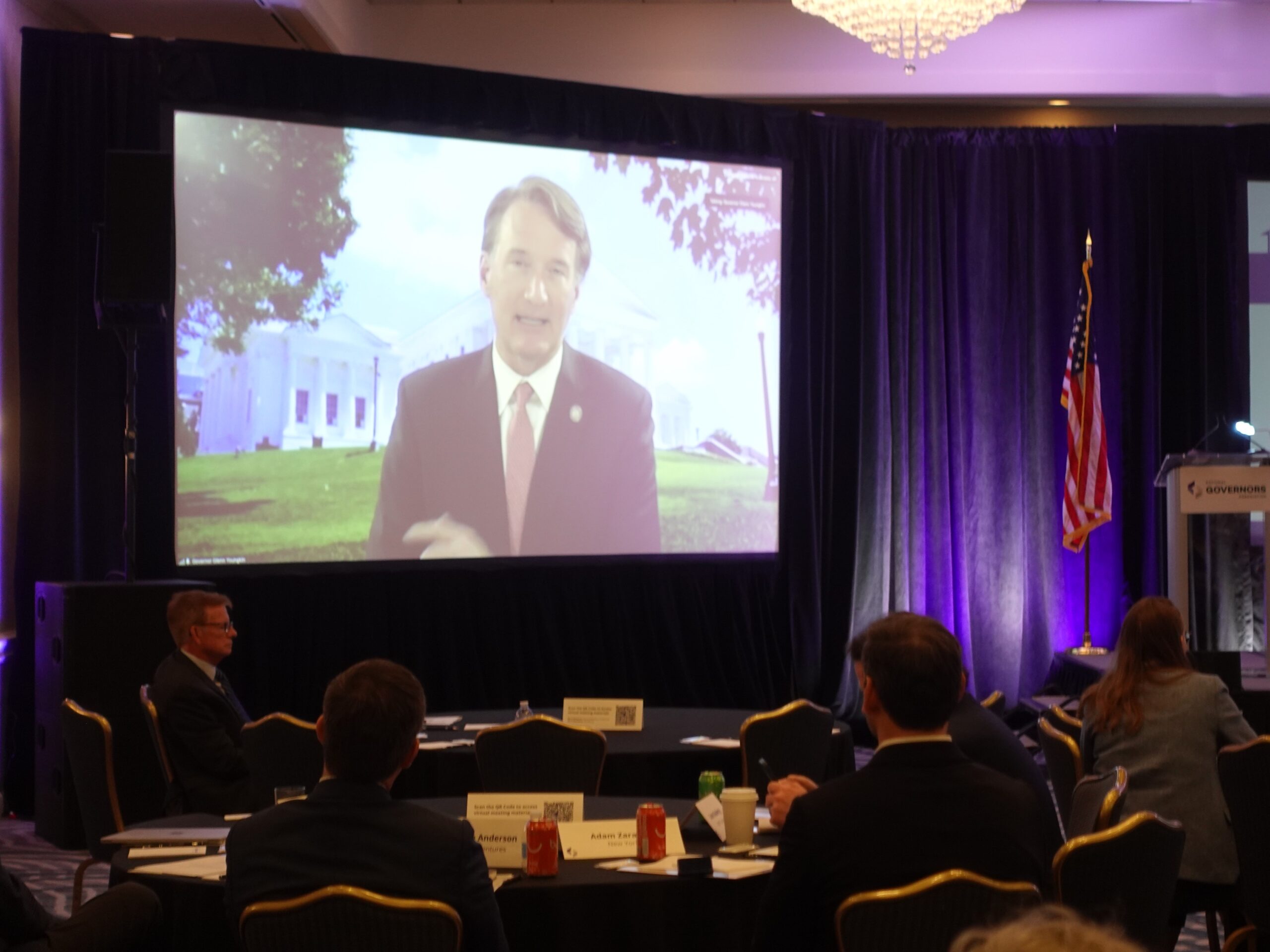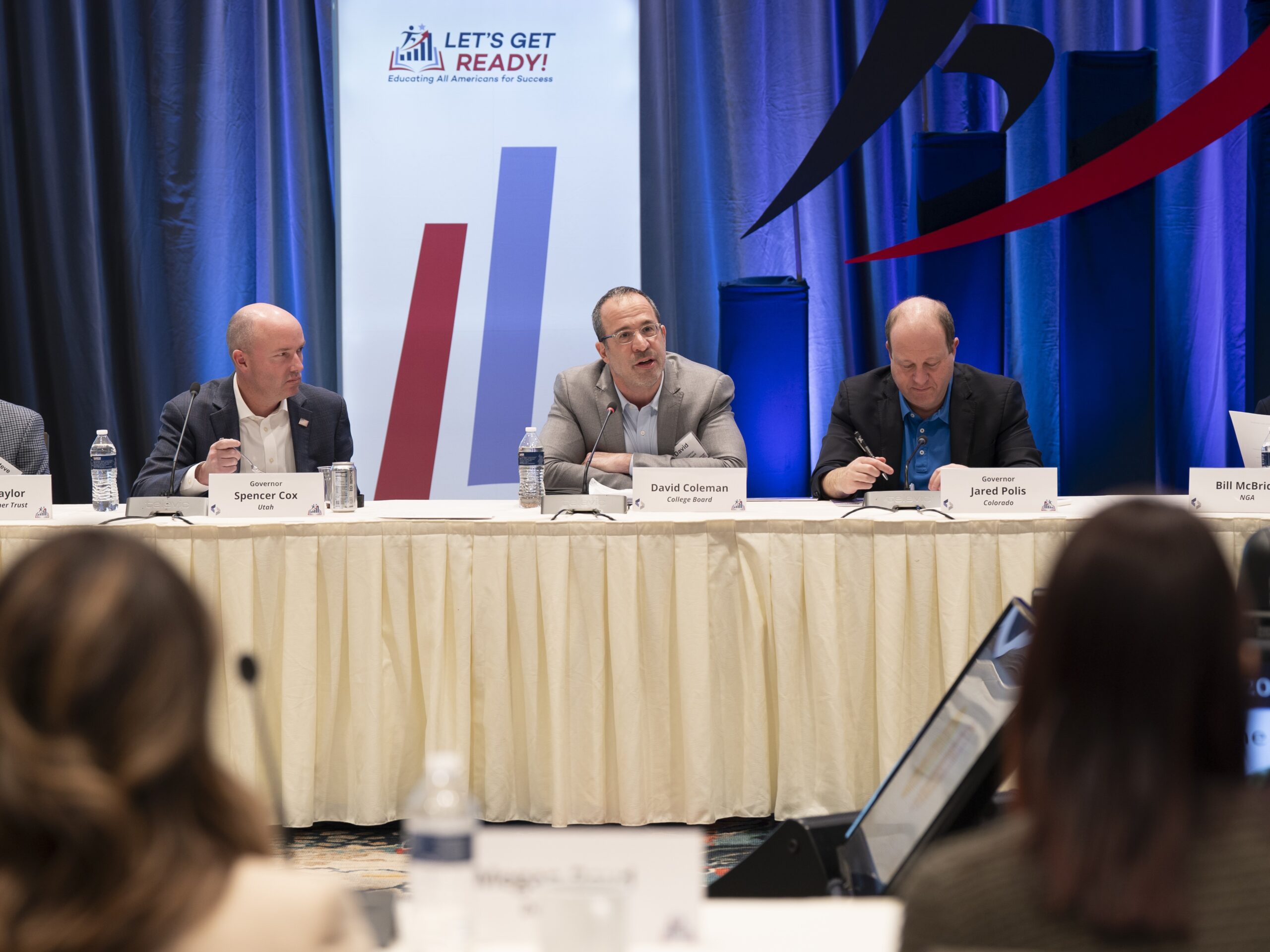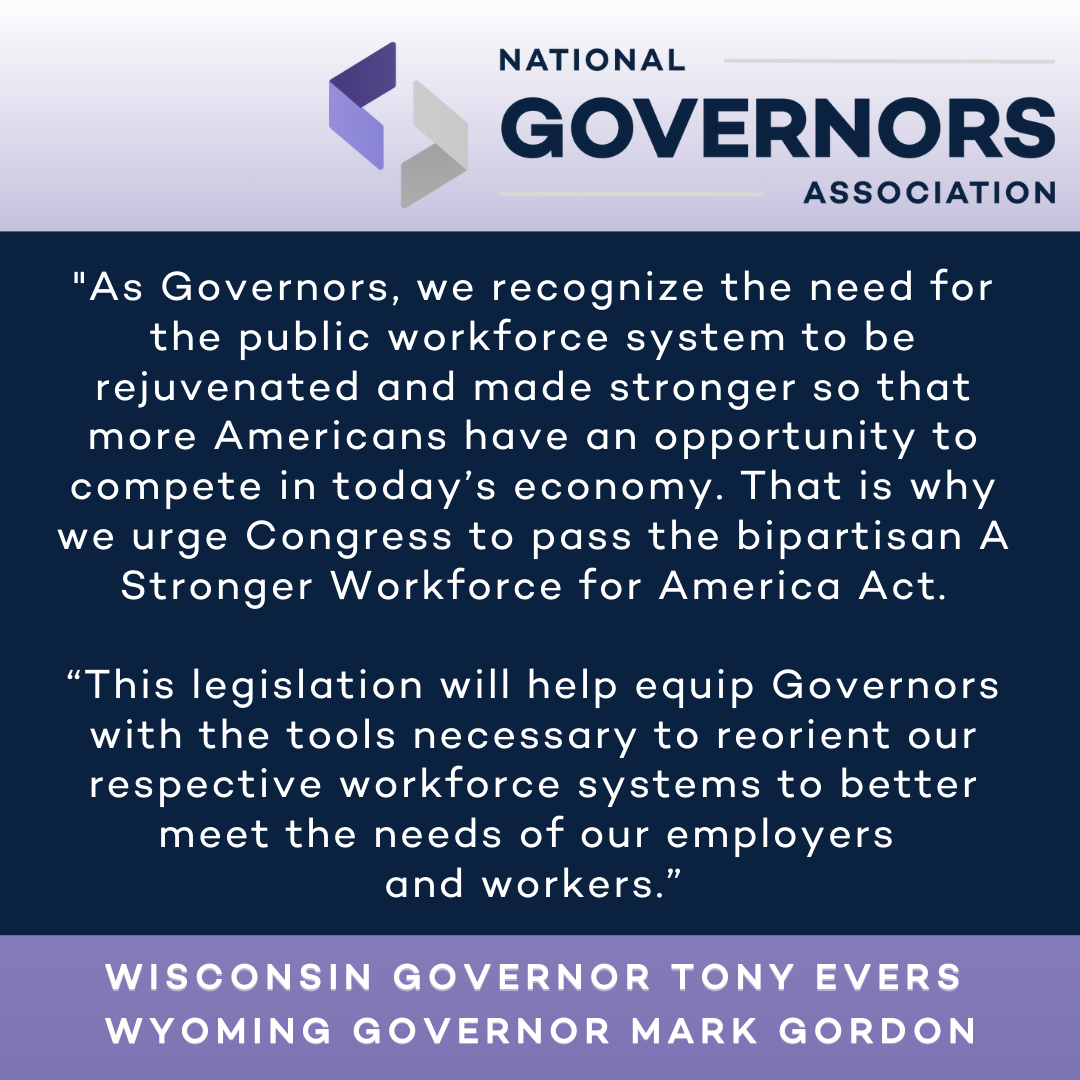The relationship and authority of states and the federal government are governed by the U.S. Constitution. The federal government is delegated certain enumerated powers while all other powers not otherwise prohibited by the Constitution are reserved to the states. America has thrived as a nation of laws with a strong national and international identity anchored by the diversity and innovation of representative self government in the states. It is vital that the National Governors Association works to preserve and promote a balanced relationship between the states, territories and the Commonwealth of Puerto Rico (herein referred to as “States”) and the federal government.
Principles for State-Federal Relations
Governors believe that federal action should be limited to those duties and powers delegated to the federal government under the Constitution. We favor the preservation of state sovereignty when legislating or regulating activity in the states. To ensure the proper balance between state and federal action and to promote a strong and cooperative state-federal relationship, governors encourage federal officials to adhere to the following guidelines when developing laws and regulations.
Exercise Federal Forbearance
Governors recommend that:
- Federal action should be limited to situations in which constitutional authority for action is clear and certain.
- Federal action should be limited to problems that are truly national in scope.
- Federal action should be sensitive to each state’s ability to bring a unique blend of resources and approaches to common problems.
- Unless the national interest is at risk, federal action should not preempt additional state action.
Avoid Federal Preemption of State Laws and Policies
Governors recognize the need for federal intervention should states fail to act collectively on issues of legitimate concern. Preemption of state laws, however, should be the exception rather than the rule. This is especially true in areas of primary state responsibility, including education, insurance regulation, criminal justice, preservation of the dual banking system, preservation of state securities regulation, and the management of state personnel programs.
- Congress should not interfere with state revenue systems. The independent ability of states to develop their own revenue systems is a basic tenet of self government and our federalist system. The federal government should not enact any legislation or adopt any regulation that would preempt, either directly or indirectly, sources of state revenues, state tax bases, or state taxation methods.
- State standards should be preserved. In cases where Congress determines that federal preemption of state laws is in the national interest, federal legislation should:
- accommodate state actions taken before its enactment;
- permit states that have developed stricter standards to continue to enforce them; and
- permit states that have developed substantially similar standards to continue to adhere to them without change.
- The judicial branch should respect state authority. Avoiding federal preemption of state laws and policies also extends to the judicial branch. Governors encourage the federal courts to restore the Tenth Amendment as a substantive limit on federal intrusion into areas of state and local concern, and place meaningful limits on the federal government’s scope of authority under the Commerce Clause. In addition, court-ordered remedies should respect state authority by limiting the time and scope of injunctive relief and by extending it no further than is necessary to restore the exercise of constitutional rights. The federal courts also should exercise forbearance in policy areas that have traditionally been state responsibilities and avoid substituting their judgments for those of state legislatures and Governors absent violations of the U.S. Constitution.
Avoid Imposing Unfunded Federal Mandates
Congress and the Administration should avoid the imposition of unfunded federal mandates on states. Federal action increasingly has relied on states to carry out policy initiatives without providing necessary funding to pay for these programs. State governments cannot function as full partners in our federal system if the federal government requires states to devote their limited resources toward complying with unfunded federal mandates.
Designing Federal-State Programs
To provide maximum flexibility and opportunity for innovation, as well as foster administrative efficiency and cross-program coordination, federal-state programs should be designed to meet the following principles:
- States should be actively involved in a cooperative effort to develop policy and administrative procedures.
- The federal government should respect the authority of states to determine the allocation of administrative and financial responsibilities within states in accordance with state constitutions and statutes. Federal legislation should not encroach on this authority.
- Legislation should authorize and appropriate sufficient funds to meet identified program objectives.
- Federal assistance funds, including funds that will be passed through to local governments, should flow through states according to state laws and procedures.
- States should be given flexibility to transfer a limited amount of funds from one grant program to another, or to administer related grants in a coordinated manner.
- Federal funds should provide maximum state flexibility without specific set-asides.
- States should be given broad flexibility in establishing federally mandated advisory groups, including the ability to combine advisory groups for related programs.
- Governors should be given the authority to require coordination among state executive branch agencies, or between levels or units of government, as a condition of the allocation or pass-through of funds.
- Federal government monitoring should be outcome-oriented.
- Federal reporting requirements should be minimized.
- The federal government should not dictate state or local government organization.
Conclusion
Governors recognize the unique nature of the federal system and the critical importance of developing a close working relationship with our federal partner. We also recognize and support a continued federal role in protecting the basic rights of all our citizens and in addressing issues beyond the capacity of individual states. At the same time, the federal government must recognize that there are problems that can be best addressed at the state and local levels.
Governors are committed to a vibrant and strong partnership with Congress and the Administration to maintain and promote a balanced federal system. Governors believe that a strong, cooperative relationship between the states and federal government is vital to best serve the interests of all citizens.













